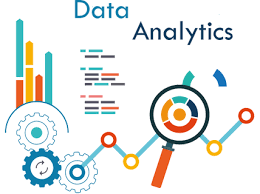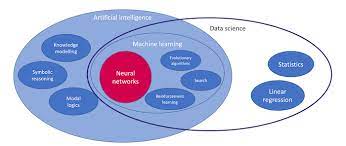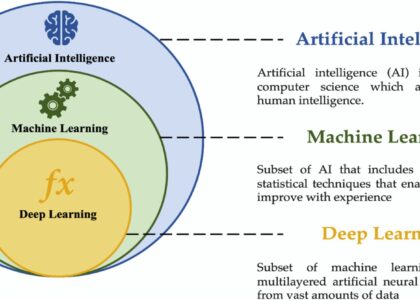The Power of Data Analysis Services
In today’s data-driven world, businesses are increasingly recognising the importance of leveraging data to make informed decisions and gain a competitive edge. Data analysis services play a crucial role in helping organisations extract valuable insights from their data, enabling them to drive growth, improve efficiency, and enhance decision-making processes.
What are Data Analysis Services?
Data analysis services involve the process of inspecting, cleansing, transforming, and modelling data to uncover meaningful information that can be used to support decision-making. These services utilise various techniques and tools to analyse large datasets and identify patterns, trends, and correlations that may not be immediately apparent.
The Benefits of Data Analysis Services
By utilising data analysis services, businesses can:
- Gain valuable insights into customer behaviour and preferences
- Identify opportunities for process improvement and cost reduction
- Forecast trends and make more accurate predictions
- Enhance marketing strategies and target specific customer segments effectively
- Optimise resource allocation and operational efficiency
- Detect anomalies or potential risks in real-time
How Data Analysis Services Work
Data analysis services typically involve the following steps:
- Data Collection: Gathering relevant data from various sources.
- Data Cleaning: Removing inconsistencies, errors, or missing values from the dataset.
- Data Exploration: Analysing the dataset to understand its characteristics and relationships.
- Data Modelling: Applying statistical techniques or machine learning algorithms to extract insights.
- Interpretation: Drawing meaningful conclusions and actionable recommendations based on the analysis.
Choosing the Right Data Analysis Service Provider
When selecting a data analysis service provider, it is essential to consider factors such as expertise in data analytics tools and techniques, industry experience, scalability of solutions, data security measures, and the ability to customise services according to specific business needs.
Understanding Data Analysis Services: Roles, Costs, Processes, and Key Offerings
- What does a data services analyst do?
- How much does it cost for data analysis?
- What are the 5 steps of data analysis?
- What are data analysis services?
- What are the services provided by data analyst?
- What are the 5 data analytics?
What does a data services analyst do?
A data services analyst plays a crucial role in the field of data analysis services by utilising their expertise to collect, clean, analyse, and interpret data to extract valuable insights for businesses. They are responsible for understanding the client’s data requirements, developing appropriate data models and algorithms, and presenting findings in a clear and actionable manner. Data services analysts use a combination of statistical techniques, machine learning algorithms, and data visualisation tools to identify patterns, trends, and correlations within large datasets. Their work helps businesses make informed decisions, improve operational efficiency, enhance customer experiences, and drive overall growth through data-driven strategies.
How much does it cost for data analysis?
When it comes to the cost of data analysis services, the pricing can vary depending on several factors such as the complexity of the data, the volume of data to be analysed, the specific requirements of the analysis, and the level of expertise needed. Some service providers may offer pricing based on a project basis, while others may charge hourly rates or subscription fees. It is crucial for businesses to discuss their needs with potential service providers to get a clear understanding of the costs involved and ensure that they receive a tailored solution that fits their budget and objectives.
What are the 5 steps of data analysis?
In the realm of data analysis services, understanding the five fundamental steps of data analysis is crucial for extracting valuable insights from datasets. The first step involves data collection, where relevant information is gathered from various sources. Subsequently, data cleaning is performed to eliminate errors and inconsistencies within the dataset. The third step, data exploration, entails analysing the dataset to uncover patterns and relationships. Following this, data modelling utilises statistical techniques or machine learning algorithms to extract insights. Finally, interpretation involves drawing meaningful conclusions and actionable recommendations based on the analysis conducted. These five steps form a structured approach that enables businesses to make informed decisions and drive growth through data-driven strategies.
What are data analysis services?
Data analysis services encompass a range of processes and techniques aimed at extracting valuable insights from data to drive informed decision-making. These services involve the systematic examination, transformation, and interpretation of data sets to uncover patterns, trends, correlations, and anomalies that can provide businesses with actionable intelligence. By leveraging data analysis services, organisations can gain a deeper understanding of their operations, customers, and market dynamics, enabling them to make strategic choices that enhance efficiency, productivity, and overall performance.
What are the services provided by data analyst?
Data analysts offer a range of services aimed at extracting valuable insights from data to support decision-making processes. Some common services provided by data analysts include data collection and cleansing, exploratory data analysis to understand patterns and trends, statistical modelling to make predictions or identify correlations, data visualisation to present findings in a clear and concise manner, and interpretation of results to derive actionable recommendations. Data analysts play a crucial role in helping businesses harness the power of data to drive growth, improve efficiency, and gain a competitive edge in today’s data-driven world.
What are the 5 data analytics?
Data analytics encompasses a wide range of techniques and methods used to analyse and interpret data to extract valuable insights. The five key types of data analytics are descriptive analytics, diagnostic analytics, predictive analytics, prescriptive analytics, and cognitive analytics. Descriptive analytics focuses on summarising historical data to provide a better understanding of what has happened in the past. Diagnostic analytics delves deeper into why certain events occurred by identifying patterns and correlations. Predictive analytics uses statistical algorithms and machine learning techniques to forecast future outcomes based on historical data. Prescriptive analytics goes a step further by recommending actions to achieve desired outcomes. Lastly, cognitive analytics involves using artificial intelligence and natural language processing to mimic human thought processes in analysing complex data sets. Each type of data analytics plays a crucial role in helping businesses make informed decisions and drive strategic growth initiatives.






